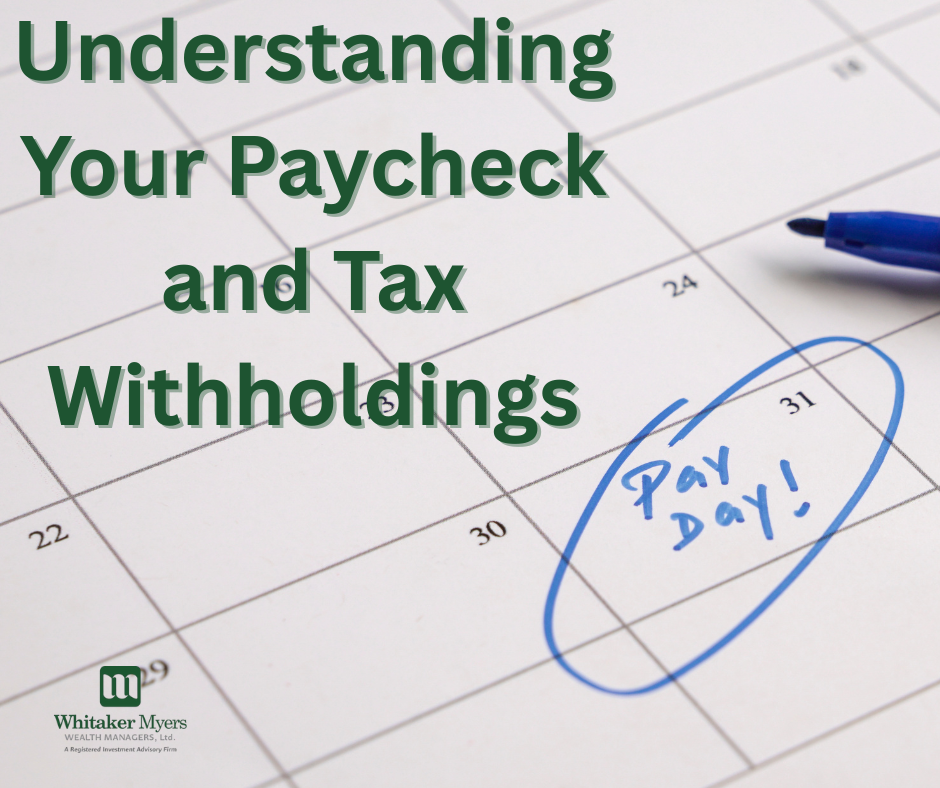Economy
Interest Rates: An Ever-Changing Landscape
Interest rates influence everything from borrowing costs to bond prices and stock valuations. Understanding how Federal Reserve rate changes ripple through the economy can help investors stay disciplined and focused on long-term financial goals.
Read More...

Preparing for Inflation: Practical Budgeting and Investment Strategies for a Higher-Cost World
Inflation has reshaped household budgets and long-term financial planning, with the cost of living rising nearly 20% since 2021. This article explores practical budget adjustments and investment strategies designed to help protect purchasing power and build resilience during prolonged inflationary periods.
Read More...

The Case for Diversification in a World of Gold and Silver
Gold and silver are grabbing headlines as investors seek shelter from inflation, volatility, and global uncertainty. While precious metals can play a limited role during turbulent times, they don’t generate income or long-term growth—and their prices are often driven by speculation. In this article, we explore the recent rise of gold and silver, weigh their pros and cons, and explain why true diversification through productive assets remains the most reliable path to lasting wealth.
Read More...

Employer Annual Benefits Enrollment – What You Need to Consider
It’s that time of year again, benefits enrollment season! Financial Advisor Andrew Young gives an overview of the various benefits you may access through your employer-sponsored benefits program. As shared in the article, these benefits make up approximately 30% of your compensation, so understanding how to use them to their full potential is of extreme benefit to you. (Pun intended!)
Read More...

The Relationship Between Interest Rates and Bonds
With the Federal Reserve’s recent announcement that is will drop interest rates, many investors are asking how a rate change could impact their portfolios. One of the most important — yet often misunderstood — relationships in finance is that between interest rates and bond prices. In this article, we’ll break down how they interact and why changes in rates can directly affect the value of your bond holdings.
Read More...

Stop Giving the Government an Interest-Free Loan: Understanding Your Paycheck and Tax Withholding
A tax refund isn’t a bonus—it’s proof you overpaid the IRS. By understanding your paycheck—earnings, pre-tax deductions, taxes, and net pay—you can adjust your federal withholding and keep more money in your pocket each month. For example, one couple discovered they’d loaned the government $7,000 interest-free. With the right strategy, that money could boost savings, investments, or debt payoff. Take control of your paycheck with smart planning and professional guidance.
Read More...

Why Real Estate Might Make Sense in Your Investment Portfolio
Real estate can be a powerful tool for portfolio diversification, offering passive income, appreciation potential, and tax benefits. Unlike stocks and bonds, it provides stability during market volatility and allows greater control through active management. While risks like illiquidity and tenant challenges exist, strategic planning can help mitigate them. For many investors, real estate is a smart way to build wealth and strengthen financial security.
Read More...

Ohio Income Tax is Dropping: Here’s What You Need to Know for 2025, 2026, and Beyond
Starting in 2025, Ohio will lower its top income tax rate from 3.5% to 3.125% and shift to a flat 2.75% rate in 2026 for income over $26,050—making it the 2nd lowest state income tax in the U.S. among taxed states. Local taxes still apply and vary by city or district. These updates may impact your financial strategy. Whitaker-Myers Wealth Managers can help you plan ahead and maximize your take-home income.
Read More...

Always Be Buying (ABB!): Why Consistency Beats Timing in Long-Term Investing
Consistently investing through dollar-cost averaging (DCA) helps reduce emotional stress and risk, even when markets hit all-time highs. Historical data shows buying at market peaks often leads to strong long-term returns, with nearly 30% of past highs becoming lasting floors. Rather than waiting for the perfect moment, disciplined, regular investing—Always Be Buying (ABB)—has proven to be a reliable strategy for long-term wealth building.
Read More...

Understanding Trump Accounts: A New Wealth-Building Opportunity for the Next Generation
A new provision in the tax bill creates “Trump Accounts” for babies born between 2025–2028, starting with a $1,000 government deposit and allowing up to $5,000/year in contributions. Invested in a stock index fund, these accounts could grow into millions by age 50 through consistent saving and compounding. With just $50/month, families can give children a powerful financial head start. Learn how to make the most of this opportunity.
Read More...

The Death of the Dollar Has Been Greatly Exaggerated
The idea that the U.S. dollar is on the verge of collapse is largely hype. Despite rising debt and global tensions, no other currency offers the trust, liquidity, and stability of the dollar. The U.S. economy’s size, innovation, and rule of law keep it at the center of global finance. While headlines fuel fear, the dollar’s dominance remains strong. Long-term investors are wise to stay steady and not be swayed by doomsday predictions.
Read More...

Geopolitical Conflicts: Understanding Market Implications for Investors
Rising tensions between Israel and Iran have led to market volatility and energy price swings. While geopolitical events can cause short-term disruption, history shows markets typically recover. Investors should avoid overreacting and stay focused on long-term goals. U.S. energy independence helps buffer economic risks, and diversified portfolios remain the best defense in uncertain times.
Read More...
